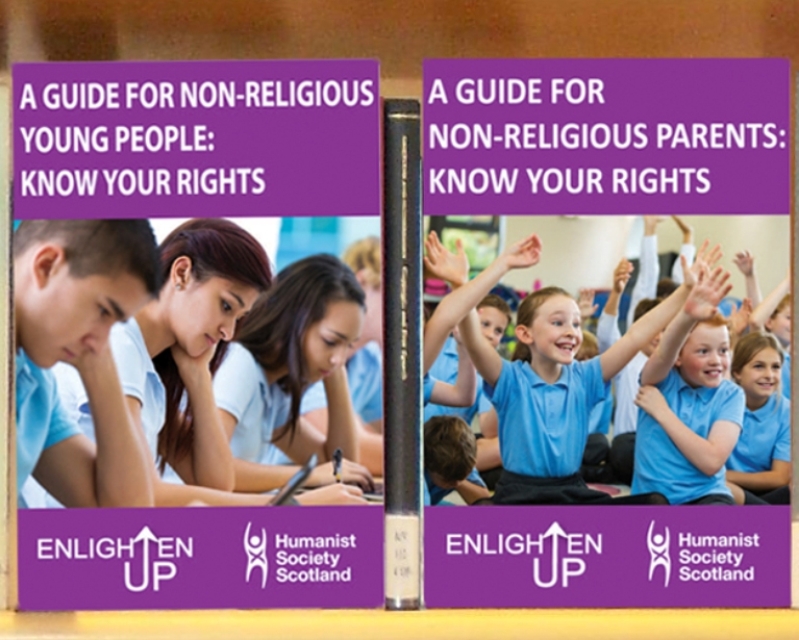
Scottish law requires public schools to host six religious observance sessions a year, although school officials may choose to have more. To counterbalance, representatives of the Humanist Society Scotland (HSS) now are providing to parents who are concerned about religious influence in schools an atheist handbook as a guide for how to challenge teachers.
New HSS materials are entitled "A Guide for Non-Religious Parents" and "A Guide for Non-Religious Young People." The goal of the handbooks are assist others with understanding human rights regarding religious classes. The books include advice on how to opt out of religious observance, what resources are available to schools, and how to make a complaint when one feels their rights have not been respected. HSS also provides templates for opt-out letters.
HSS spokespersons said they received regular complaints from parents and pupils, and they believe the guides would help "empower the two-thirds of non-religious young people in Scotland."
A new campaign, called Enlighten Up was launched by HSS, with the goal of training Humanist School Visitors to participate in classes, group discussions and debates.
Gary McLelland, HSS head of communications, told Christian Today: "Many people across Scotland feel uncomfortable about the religious content of in the school system but are unsure about what their legal rights are.
"We know from our own research that not all parents are aware of their right to withdraw from religious observance. Schools really do have a responsibility to let parents and care givers know what their legal rights are. That's why we've created these booklets."
McLelland said their ultimate objective is to see religious observance scrapped and replaced with a more inclusive activity, such as philosophy. "But until then, we will campaign to make sure that all parents and young people are aware of their rights."
Scottish National Party (SNP) leaders have indicated they do not intend to change Scottish laws that enable schools to hold religious observances, when HSS officials accused SNP leaders of "dragging their feet" over refusing to allow older students to opt out of religious sessions.
Scotland's decentralized education system yields a variety of content and execution styles within these religious sessions. According to Christian Today, in more inner-city schools the observances often are less specifically religious, with campaign groups as well as church priests leading a "reflection," while in the rural areas, the sessions typically are more traditionally Presbyterian and run by Church of Scotland ministers.
The self-defined description of Humanists are people who desire non-religious services and represent the views of those who wish to lead an ethical life. Specifically, within education, HSS members indicate they don't want anyone to feel excluded or different just because they don't follow a religion.







